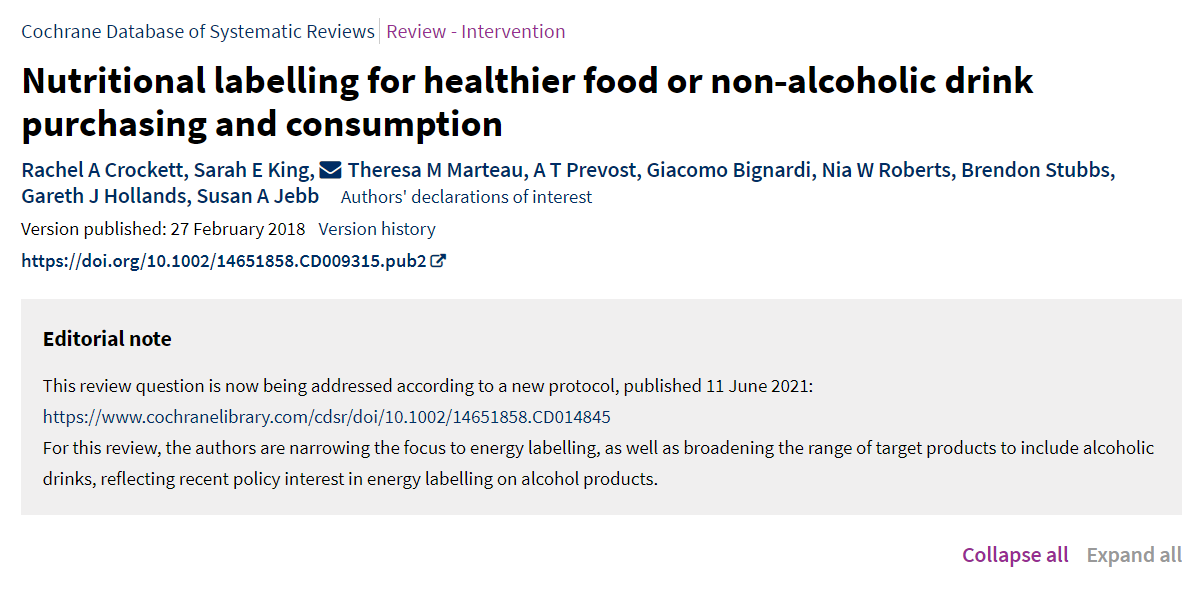An Editorial note is a short text statement that can be added to a Cochrane Review or protocol. On the Cochrane Library the Editorial note displays above the abstract.
Before publishing an editorial note, consult the Editorial notes policy and determine the type of Editorial note required and whether you need to contact the Editor in Chief or the Research Integrity team (by emailing emd@cochrane.org) in advance.
After publishing an Editorial note, please always notify the Editorial and Methods Department (emd@cochrane.org), with a link to relevant review or protocol.
Editorial notes are created and managed in RevMan 5 or RevMan Web using the Published notes section. For details on how to add or edit an Editorial note, see the RevMan knowledge base. Editorial notes are published as part of a standard amendment or update workflow, using the 'amended' what's new event (no new citation). During the publication process, the Editorial note is extracted from the published notes and displayed separately.
Editorial notes must be a single paragraph of text, with no lists, subheadings, figures or tables, as short as possible and no more than 200 characters in total. They can include links in the form of full URLs.
To publish an Editorial note that directs readers to a more recent review, the text needs to be addressed to a general reader who may have found the review by a Google search, for example, and it should include the DOI in URL form for the newer review or protocol.
Some examples:
There is a more recent Cochrane review on this topic: https://doi.org/10.1002/14651858.CD00XXXX.pub2
This review question is now being addressed according to a new protocol: https://doi.org/10.1002/14651858.CD00XXXX
See https://doi.org/10.1002/14651858.CD00XXXX for a more recent review that covers this topic.
Screenshot example:
Suggested template text for Editorial notes to inform readers that a protocol will not be progressed to the review stage:
- This protocol will not be progressed to the review stage as it no longer meets Cochrane's methodological standards.
- This protocol will not be progressed to the review stage as there has been no progress with the review in XX months/years. New authors are being sought to take this topic forward.
- This protocol will not be progressed to a review because the topic is no longer considered a priority.
- To minimize research waste, this protocol will not be progressed to the review stage because we are aware of another good-quality review on this topic already in progress/published (provide reference if applicable).
When published, the Editorial note will also display in the PDF version on the Cochrane Library and also above the plain language summary on https://www.cochrane.org/evidence. If the full text is on PubMed Central, the Editorial note will also be displayed there. Currently the Editorial note is not delivered to PubMed, but Cochrane and Wiley are exploring the options for displaying notes on PubMed.
